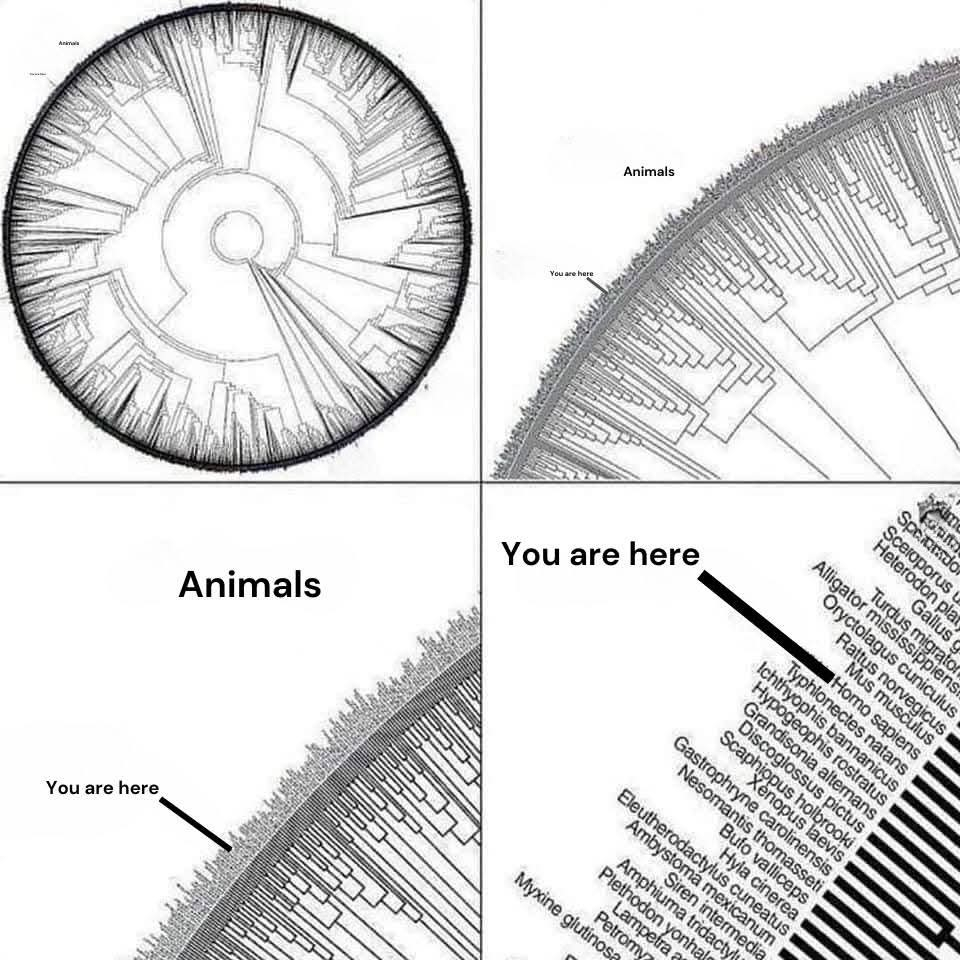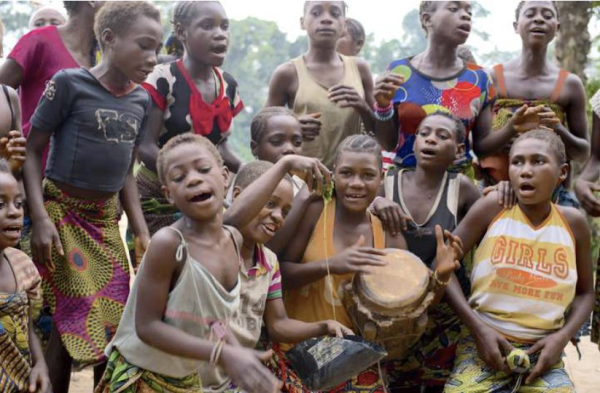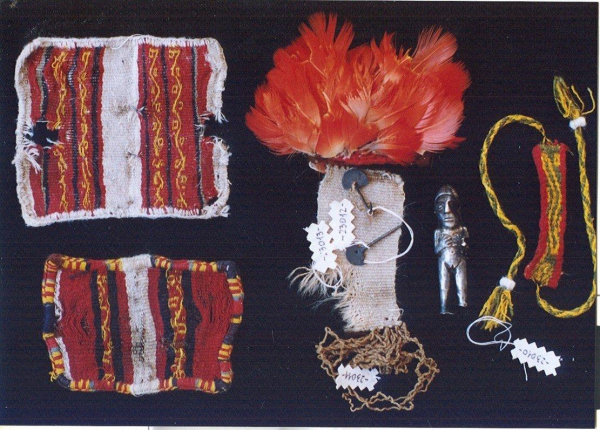Suche
Beiträge, die mit anthropology getaggt sind
Dark skin was widespread across the continent for a considerably longer period of time than previously believed, according to a DNA study that has completely changed our perception of the appearance of ancient Europeans. In the study, 348 ancient human genomes from people who lived between 45,000 and 1,700 years ago were examined..
More information: https://archaeologymag.com/2025/03/most-ancient-europeans-had-dark-skin/
Follow @archaeology
#archaeology #anthropology
Most ancient Europeans had dark skin until 3,000 years ago, study finds
Dark skin was common in Europe for much longer than previously believed, according to a recent DNA analysis...Dario Radley (Archaeology News Online Magazine)
TONIGHT
Everybody welcome, just turn up!
LIVE @UCLAnthropology and on ZOOM
🌔Tues Mar 11, 6:30pm (London UTC)🌕
Chris Knight on
'On women and jaguars: why perspectivism got it so wrong'
Across Amazonia, myths hold that in early times it was the jaguars, parrots, tapirs and other animals who first invented bows and arrows, cooking fire, ceremonial buildings, religious ceremonies and other complex cultural accomplishments. Then humans stole these things from the animals, elevating themselves above all other creatures – but at the cost of losing their former ability to engage in easy conversation with the animal world. This mythic view of our origins is the reverse of the Darwinian narrative which our own culture holds up as science.
In this talk, #ChrisKnight will introduce a recent trend in social anthropology – known as ‘perspectivism’ – and discuss whether such radically different ways of perceiving our origins and place in nature can be made to converge.
Chris will be speaking LIVE in the Daryll Forde, 2nd Floor of UCL Anthropology Dept, 14 Taviton St, London WC1H 0BW. Come in good time by 6:30pm before doors close please. You can also join on ZOOM ID 384 186 2174 passcode Wawilak
#Amazon #perspectivism #anthropology #ritual #animism #alterity #femaleinitiation #gender
Combining ethnography and history, Isabel Yaya McKenzie offers, in this layered article, a fascinating reflection on #longuedurée, #memory, and lived temporalities.
➡️ Isabel YAYA McKENZIE, Dimensions of Time in a Ritual Drama: A Historical Anthropology of a “Conquest Dance” in the Central Peruvian Sierra from the Sixteenth to the Twenty-first Century
👉 https://doi.org/10.1017/ahsse.2024.16
@histodons #histodons #AnnalesinEnglish #andes #peru #anthropo #anthropology #anthropodons #colonial #conquest #incas
'Horus Group scientists who had found heart disease in mummies would join with the Tsimane Project and analyse CT scans of the hearts of the Tsimane, an Indigenous tribe of about 17,000 people living in the lowland Bolivian jungle. They would find almost no heart disease. What’s more, continuing research with the Tsimane shows rates of dementia among the lowest ever observed, and they have only minimal cognitive impairment with ageing.'
#anthropology #amazon #ageing #Bolivia #foragerfarmers
https://aeon.co/essays/what-amazonian-lives-tell-us-about-heart-health-and-longevity
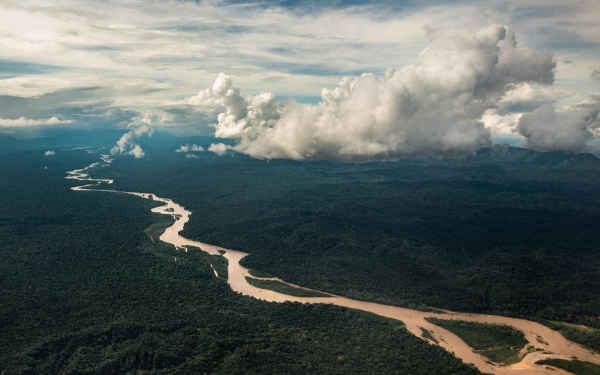
What Amazonian lives tell us about heart health and longevity | Aeon Essays
Humans always end up with clogged arteries, right? That’s not what the lives of the Tsimane in the Amazon basin tell usBen Daitz (Aeon Magazine)
"Scientists have created an updated version of the circle of life — showing everything we understand about how Earth's 2.3 million known species are related to one another."
More: https://today.duke.edu/2015/09/treeoflife #anthropology #humanchauvinism
TONIGHT!!
Our Spring Term of Radical #Anthropology starts
6:30pm London time.
Everybody welcome, just turn up! LIVE or ZOOM
🌕Tues Jan 14 gregorian🌖 18:30 (London)
with #ChrisKnight and #JeromeLewis
LIVE @UCLanthropology + on ZOOM
'When Eve Laughed: The origins of language'
"Why, out of 220 primate species, are we the only one which talks? Laughter, too, is unique to our species. Although different from language, collective, contagious laughter may have set the scene for words + grammar to evolve by establishing the necessary bonds of trust. In addition to the latest archaeological research, this talk will draw on hunter-gatherer studies to show how men learn to communicate with birds and beasts and how women use laughter as a levelling device."
#humanorigins #language #ritual #symbolicculture
LIVE in the Daryll Forde Room, 2nd Floor of the UCL Anthropology Dept, 14 Taviton St, London WC1H 0BW
ZOOM ID 384 186 2174 passcode Wawilak
"It’s unwise to romanticize any past society or culture... But when you encounter tales of garden cities linked by vast causeways... populated by people and their pet ducks, it can be a little hard not to indulge in daydreams about life there... Casarabe culture, who lived in the Llanos de Mojos region of the Bolivian Amazon between 500 and 1400, before the arrival of Europeans."
5,500-Year-Old Forest in Yellowstone
https://www.404media.co/an-5-500-year-old-forest-in-yellowstone-melted-out-of-the-ice/ #Anthropology
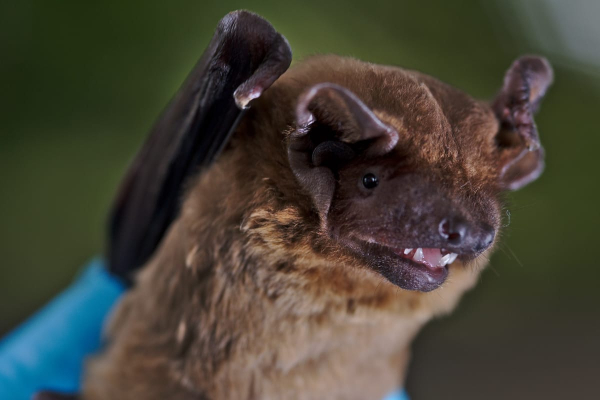
A 5,500-Year-Old Forest in Yellowstone Melted Out of the Ice
We begin 2025 with Amazonian garden cities, lost woods in the Rockies, battitude, and robot hoopers.Becky Ferreira (404 Media)
#SpaceExploration #Anthropology
https://phys.org/news/2024-12-anthropologists-tracking-human-artifacts-mars.html
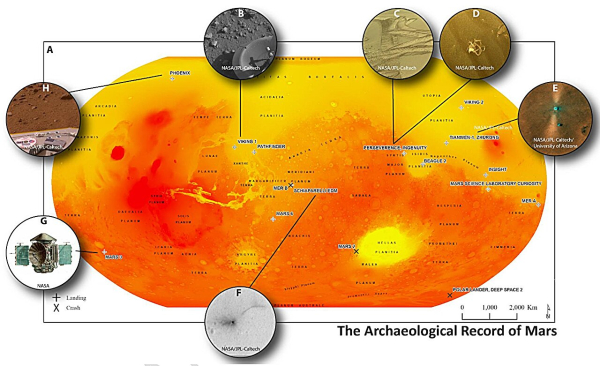
Anthropologists call for tracking and preservation of human artifacts on Mars
Are human spacecraft, landers, rovers and other space-exploration debris little more than trash littering the surface of Mars, or the modern equivalent of Clovis points—treasured artifacts marking Homo sapiens' lust for new frontiers?University of Kansas (Phys.org)
https://www.science.org/content/article/indigenous-tribes-engineered-british-columbia-s-modern-hazelnut-forests-more-7000-years
* genetic analysis
* could help First Nations secure land rights in Cdn courts
* actively cultivated crop
* transported hazelnuts 800 km
* cultivate nutritious/reliable food source in new regions
Genetic differentiation/precolonial Indigenous cultivation of hazelnut
https://www.pnas.org/doi/abs/10.1073/pnas.2402304121
#Canada #Indigenous #BC #BritishColumbia #cultivation #anthropology #LandRights
This evening in London 🩸⬇️🩸⬇️
Everybody welcome, just turn up!
LIVE or ZOOM
🌔Tues Nov 12 18:30 🌕 (London UK)
with #DeniseArnold
LIVE @UCLanthropology
And on ZOOM
'Sea shells, women's blood and an Andean bioclimatology of water'
LIVE in the Daryll Forde Room, 2nd Floor of the UCL Anthropology Dept, 14 Taviton St, London WC1H 0BW
ZOOM ID 384 186 2174 passcode Wawilak
Denise Arnold explores the mutual rearing practices between Andean populations and water, in its different manifestations, as a key life-giving element in their mountainous habitat. Andean animist ontologies recognise how humans and water flow are constituted mutually, through a dynamic relationality, which extends to other aquatic phenomena, including the sea-shell Spondylus princeps. This knowledge is learned and transmitted between the generations in the rites of passage of adolescent girls and boys, when they learn an interdependence with water, establish relations with water beings, and practice equivalences between their own blood flow and water flow.
Examined in this context are Inka rites of passage, a school ritual focused on learning about water flow, a female rite of passage when women learn to use particular designs and colours in their weavings, and a ritual offering of Spondylus to high mountain shrines. These practices are situated in the emerging discipline of bioclimatology.
Denise, an Anglo-Bolivian anthropologist, directs the Instituto de Lengua y Cultura Aymara, in La Paz, Bolivia. She will be LIVE in the Daryll Forde, 2nd Floor, UCL Anthropology Dept, 14 Taviton St, WC1H 0BW. Please arrive by 6:30pm before doors close. Or join on ZOOM ID 384 186 2174 passcode Wawilak
#Andes #animism #ontology #morethanhuman #Aymara #Inka #anthropology
"As the essays in this series go to press, a genocidal war in #Gaza continues to escalate throughout Palestine and around the region. [..] In the face of this ongoing catastrophe, this Hot Spots series contributes to continued efforts to amplify and produce multi-dimensional and layered scholarship on #Palestine in regional perspective."
https://culanth.org/fieldsights/series/anthropology-in-a-time-of-genocide
#PalestineQuestion #oPt #ColonialViolence #MiddleEast
@palestine

Anthropology in a Time of Genocide: On Nakba and Return
The essays in this series were written during the summer of 2024, and may not fully address rapidly escalating violence in the region. As the ess...Society for Cultural Anthropology
#JanePsmith
Touché.
https://www.thepsmiths.com/p/review-sick-societies-by-robert-b
#traditionalism #anthropology #maladaptation #GKChesterton
#ThePsmiths
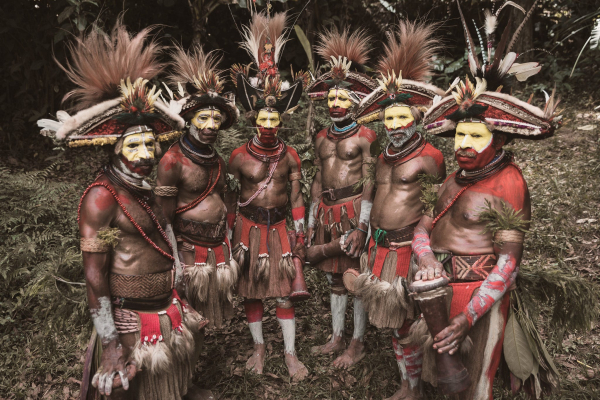
REVIEW: Sick Societies, by Robert B. Edgerton
Sick Societies: Challenging the Myth of Primitive Harmony, Robert B.Jane Psmith (Mr. and Mrs. Psmith’s Bookshelf)
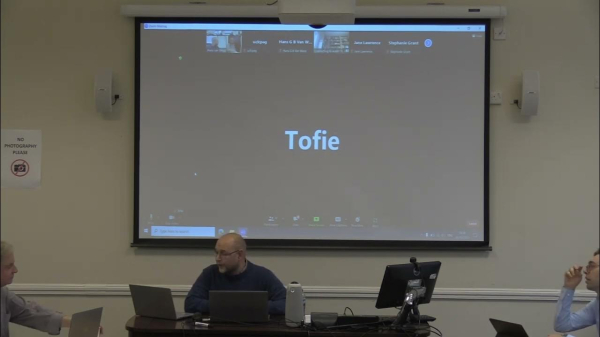
Economic strategies and slavery: renting and buying enslaved labour in Classical Athens
Economic strategies and slavery: renting and buying enslaved labour in Classical AthensJason Porter (Edinburgh)26 October 2023YouTube
W.E.I.R.D.-ly.
"Even the highly cited examples of 150-people networks have been criticised as overwhelmingly skewed towards rich, educated, and industrialised societies, with non-western cultures rarely mentioned. Confirmation bias may well be a factor in the popularity and acceptance of Dunbar’s number."
https://oxsci.org/end-of-dunbars-number/
#sociology #psychology #anthropology #ecology #PopularScience #SocialNeworks #correlation #nuance #context #friendship #PopCulture #WEIRD

The end of Dunbar’s number: Have our social networks changed for good? - The Oxford Scientist
Helen Collins explores evidence for and against Dunbar's number, the idea that our species' social groups are limited to around 150 people.Helen Collins (The Oxford Scientist)
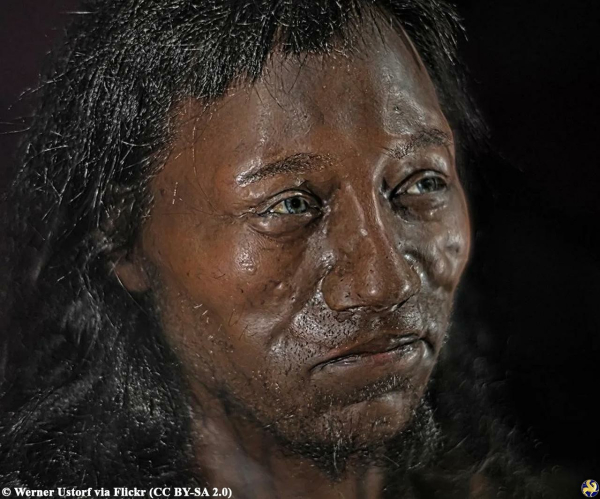

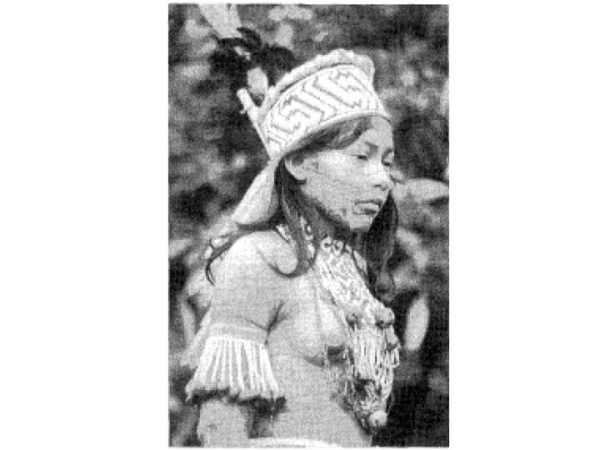
![Danza de la degollación del Inca (Dance of the beheading of the Inca). Source: Codex Martínez Compañón [1782–1785] Danza de la degollación del Inca (Dance of the beheading of the Inca). Source: Codex Martínez Compañón [1782–1785]](https://friendica-leipzig.de/photo/preview/1024/701994)
